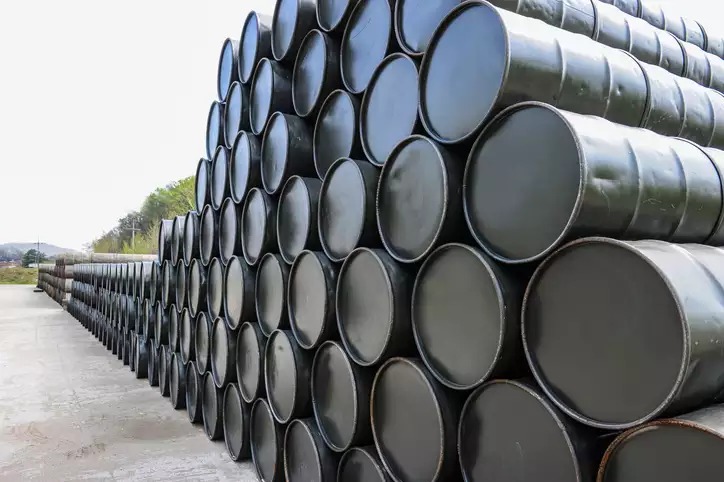
By YANGE IKYAA
Oil prices experienced one of their worst trading days in recent memory on Friday in the United States, plunging across board by over 10% on fears that a new COVID-19 variant discovered in Southern Africa might dampen economic growth and trigger another demand slump.
This trend was also experienced in Asia, where spot LNG prices stopped climbing on concerns of the potential impact of the new coronavirus variant, dropping to $36 per mmBtu, despite demand heating up in South Korea and Japan.
Named Omicron, the World Health Organization (WHO) has declared it a variant of concern, saying on Friday that preliminary evidence suggest the new variant carried a higher risk of reinfection than other variants and is the most heavily mutated version yet, which means Covid vaccines designed using the original strain from Wuhan may not be as effective.
Being an international commodity, the scenario in Asia and America could be a sign of a global trend. This is because, while Western Texas Intermediate crude prices tumbled Friday more than 10% from their Wednesday close, Brent slid nearly 4% to below $80 a barrel on Friday.
EU member states agreed a travel ban to some countries in Southern Africa after Europe’s first case of the variant was discovered in Belgium. The ban will be applied to travellers from Botswana, Eswatini (Swaziland), Lesotho, Mozambique, Namibia, South Africa and Zimbabwe.
The situation portends that an even lower global demand is possible, and that a global supply surplus could swell in the first quarter of 2021 following the release of crude reserves by the United States and others.
Due to the spectacular failure of Strategic Petroleum Reserve (SPR) releases by the US, which instead of depressing prices ratcheted them up higher, renewed COVID-19 concerns have now done the job.
The Strategic Petroleum Reserve is an emergency stockpile of petroleum maintained by the United States Department of Energy. It is the largest known emergency supply in the world, and its underground tanks in Louisiana and Texas alone have the capacity for 714 million barrels.
But OPEC+ might still have a say in this, with the group’s coming meeting on December 2 potentially providing an opportunity for reduction in production targets for 2022. Its Economic Commission Board says the releases of SPR carried out by the US and its partners will only inflate the global crude surplus over Q1 2022, potentially resulting in a slower-than-assumed production rollout expected to come up from bloc.
Despite repeated talks with the US government, China has pushed back against President Biden’s calls to “do more” and stated it would coordinate its own releases of strategic stocks according to its needs.


